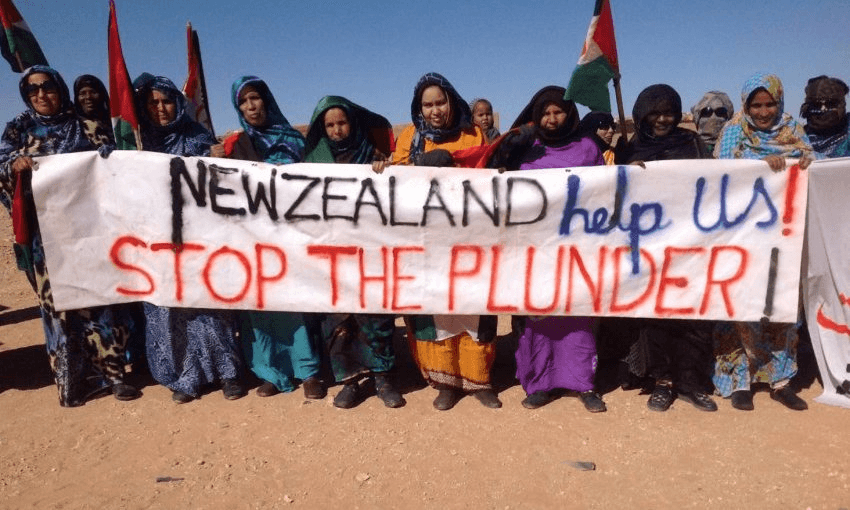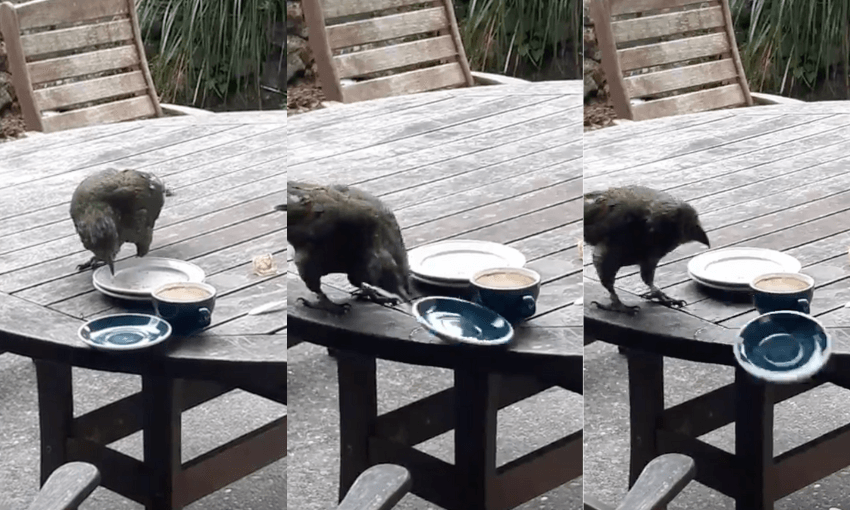New Zealand is the world’s only major purchaser of phosphate from Western Sahara, where mineral revenues are driving a newly declared war. Amal Samaha explains what you need to know.
On Friday morning, leaders of the Polisario Front, a Sahrawi independence group in Western Sahara, declared war on the Kingdom of Morocco over the latter’s violation of a decades-long truce that brought an uneasy peace to the region since 1991.
Small-scale regional wars are becoming more common in 2020, be it the Armenian-Azerbaijani war over Artsakh, escalating tensions between Ethiopia and Tigray, or the more long-running conflicts in Libya, Syria, Yemen or Afghanistan. Disease and increasing economic uncertainty, it seems, are pushing many of the world’s longstanding ethnic and political divides to the fore.
But what sets this new conflict apart from the others, which can so easily be reduced to little-read headlines?
In short, New Zealand is a key player in this war, whether we know it or not. It comes down to our preferences in fertiliser.
The conflict so far
In the late 19th century, Spanish settlers claimed the region as the so-called Spanish Sahara, but they never fully controlled the indigenous Sahrawi population. By the 1970s, a declining Spanish State under Franscisco Franco handed control of the region over to Morocco and Mauritania, worried that an indigenous resistance movement – the Polisario Front – would gain control. Mauritania was soon beaten back by the Polisario Front, but Moroccan troops remained.
In the mid 1980s, Moroccan troops built a large sand wall across the entire length of the territory. The wall, which the Sahrawi call “the wall of shame,” blocked off all of the economically useful areas of the territory, such as cities, mines and ports, from the eastern sand dunes.
About 160,000 Sahrawi were displaced by the conflict. The majority live in refugee camps in Algeria, which also became the Polisario Front’s new base of operations.
By 1991, both parties were exhausted from decades of conflict, and Polisario leaders agreed to a ceasefire which ultimately gave Morocco control of the territory, on the condition that an independence referendum be held sometime in the future.
However, the UN-held referendum never came, and it seems unlikely it ever will.
Why fight over desert?
The various countries involved justify the conflict as a war of rightful claims, historic ties, and ethnic identity, but while many may fight for these reasons, there is one overwhelming reason why so many countries have tried to control this arid landscape. Despite seeming lifeless, the desert abounds in resources: the sea is home to rich fisheries, and the desert itself hides valuable mineral deposits.
The right to profit off of these resources was the main motive behind the Spanish handover (after which Spain retained 35% of Moroccan profits), and it is still the driving force behind conflict today.
The Moroccan state in particular has come to depend upon mineral revenues. The state owns 95% of the OCP group, a company which has a near-monopoly on the world’s supply of phosphate, with access to 70% of the world’s supply.
Phosphate is a valuable fertiliser, and the rock phosphate produced in the OCP group’s mines in Morocco and Western Sahara is considered the best for manufacturing “superphosphate,” which New Zealand companies say is best suited to our soil.
But because of the role this phosphate has in funding armed conflict, activist groups and watchdogs have coined a new term for the product: “blood phosphate.”
‘Blood phosphate’ in New Zealand
Much of the world has refused to trade in these blood phosphates. In 2016 a European court ruled that Western Sahara should not be considered a part of Morocco, at least when it comes to trade deals. A year later, 50,000 tons of phosphate rocks bound for New Zealand were impounded in South Africa, drawing further attention to the practice, and adding to the international legal precedent.
Despite this, New Zealand companies, in particular Ballance Agri-Nutrients and Ravensdown, continue to import Western Saharan phosphate in huge quantities.
Indeed, New Zealand is the only remaining substantial buyer for the product.
After the phosphate ship NM Cherry Blossom was impounded in South Africa, other ships have had to take convoluted, circuitous routes to hide their cargo, source, and destination from watchdogs and activists. Last year, the Venture Pearl loaded a cargo at El-Aiun in Western Sahara, only to list its destination as first Rio de Janiero, then Cape Horn, and then China, before finally heading to New Zealand.
The deceit is perhaps understandable, given dockworkers with the Rail and Maritime Transport Union threatened to go on strike rather than unload more blood phosphate, after another ship, the Federal Crimson, was found to be carrying rock phosphate to Napier, Lyttelton and Port Chalmers last year. An earlier ship, the Amoy Dream, was also met with protests as it docked in Dunedin and Lyttelton.
These pressures culminated earlier this year in the Polisario Front taking the New Zealand Super Fund to court over its use of blood phosphate on 25 farms owned by the fund.
Despite pressure to change its practices, Ravensdown has continued to state that these imports are legal so long as OCP and the Moroccan state abides by UN agreements, and maintains a non-discriminatory working environment on its sites.
What next for blood phosphate?
Now that the UN-brokered ceasefire is no longer in effect, Ravensdown and Ballance Agri-Nutrients’ justification for the continued use of blood phosphate is severely out of date. It will be difficult for Ravensdown to argue that they are “satisfied that OCP does comply with the UN framework at this time” when the Morroccan state, OCP’s owner, is in violation of the truce.
In addition to renewed legal troubles, the fertiliser companies are also confronted with nationwide protest actions since the truce was broken. Protestors from Extinction Rebellion, Environmental Justice Ōtepoti and Free Western Sahara shut down Ravensdown and Ballance depots in Carterton, Mt Maunganui, and Taieri on Monday morning, while also blockading Ravensdown’s Christchurch HQ.
The Polisario Front, for its part, says that it has lost all hope for a UN-led resolution to the crisis, after UN member states largely failed to reprimand Morocco for its actions on Friday. On Saturday, the Front announced that “war had begun,” with Polisario forces firing on several Moroccan encampments along the wall.
Minister of information of the Polisario Front, Hamada Salma, made it clear that Morocco’s actions in Guerguerat had crushed any hopes of peace, adding that “things will not return to what they were without being deterred by the Moroccan regime, which is responsible throughout this period for obstructing a peaceful solution in the region”.
The UN has called for peace in the region, but its mission in the area is considered one of the world’s least capable, with no mandate for monitoring human rights or peacekeeping.
Given that the situation in Western Sahara appears to be escalating, it seems unlikely that New Zealand’s fertiliser corporations will be able to continue business as usual. Be it supply disruptions as a result of war, or increased legal and political challenges, the phosphate will not flow as easily as it once did.
But alternatives to this blood phosphate do remain. Internal Super Fund documents released under the Official Information Act in April 2019 revealed that “[the] ministry of foreign affairs and trade says there are alternative sources. New Zealand only started getting phosphate from the Western Sahara in the 1980s.”
Blood phosphate, it seems, is simply cheaper for the time being. It remains to be seen whether increased public pressure, or perhaps political leadership, can guide New Zealand away from its complicity in this foreign conflict.

